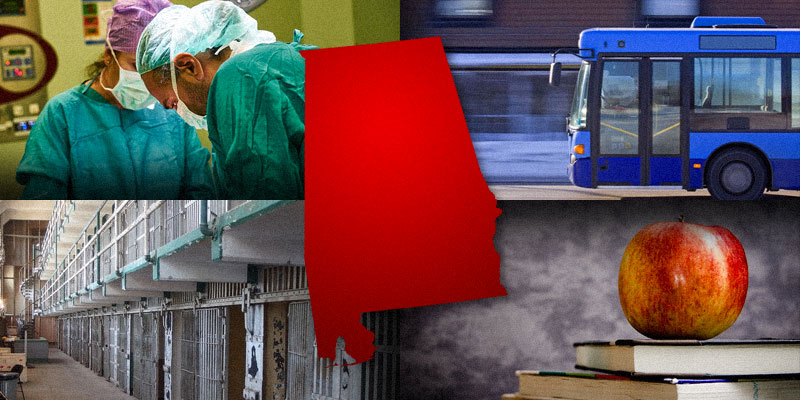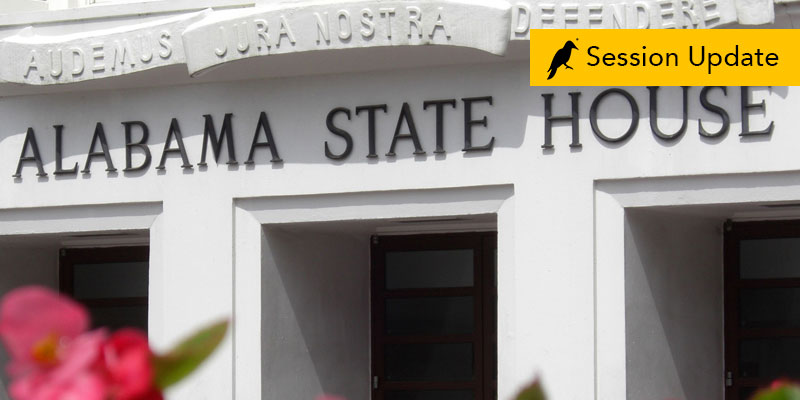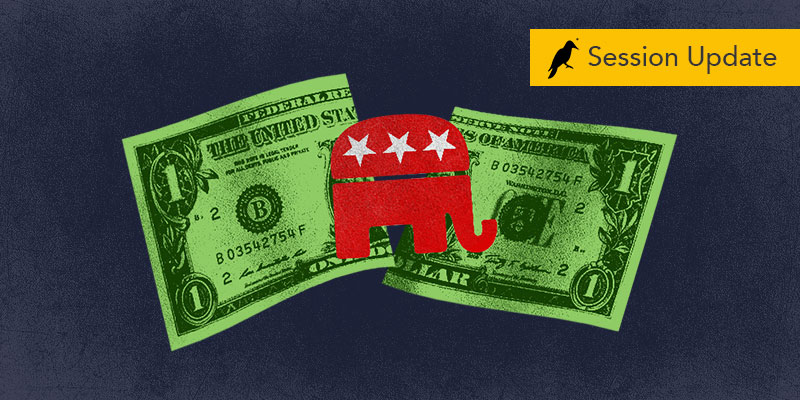
Don’t expect the Legislature to tackle big, long-simmering problems in the legislative session that begins this month.
As is typical during years when members of the state House of Representative and Senate are up for re-election, each lawmaker will have an eye on the looming fall campaign. That means the session that begins Tuesday likely will be a keeping-the-lights-on exercise.
“Of course, this is an election year,” House Speaker Mac McCutcheon (R-Monrovia) said in an interview with Yellowhammer News. “And because of it being an election year, we want to try to get in, take care of our constitutional requirements — which the budget is priority for that — and let’s address our budgets and let’s try to make it as quick a session as possible and get out and let members go back and start campaigning for the new quadrennium.”
By law, legislators must pass a budget to fund education on the one hand and a spending plan for the rest of state government on the other.
Making the numbers balance in the general fund budget has become an annual headache for lawmakers, but the task will be easier this year because the state managed to carry over $93 million from the previous fiscal year.
McCutcheon said that “speaks volumes for the fiscal responsibility for the legislative body.”
One major factor of uncertainty, however, is the fact that Congress has yet to reauthorize the Children’s Health Insurance Program, which provides health coverage to children in lower-income families. Before leaving for the Christmas break, Congress extended the program only through March.
The House passed a long-term funding plan, over the objections of Democrats, who disagreed with how Republicans chose to fund the program; the Senate has not acted.
Without last month’s temporary stop-gap, Alabama would have run out of federal funds for its CHIP program by March, which would have forced the state to spend up to $50 million. That would have eaten into the general fund cushion built up last year.
Many experts believe congressional Republicans and Democrats ultimately will strike a deal, since no lawmaker has suggested killing the popular health care program. But McCutcheon is taking nothing for granted as state lawmakers head to Montgomery.
“I’m not confident in anything the federal government’s doing right now,” he said. “I’m just in a wait-and-see mode.”
Sen. Trip Pittman, a Montrose Republican who chairs the general fund budget committee in the upper chamber, said a $90 million surplus can vanish quickly.
“So, one of the things that’s important is to have fiscal discipline,” he said.
Pittman said there will be continued pressure on the Legislature to raise taxes and expand the Medicaid program, a step Alabama repeatedly has rejected since Congress passed the Affordable Care Act and dangled additional federal funds to cover more people.
“We have to balance our appropriations and revenue. … We’ll have to make choices and hard votes,” Pittman said.
McCutcheon talked about a number of other issues, most of which likely will not be resolved this year:
Education — pay raises and pre-K
McCutcheon said he would like to expand the state’s highly regarded pre-kindergarten program.
“And then, also, as we look at the general fund budget and the education budget, we’re hoping that we may have an opportunity to have a discussion for some pay increases for state employees, to include education and state employees,” he said.
Pay for teachers and other state workers mostly has been stagnant for a decade, although lawmakers did approve a 4 percent hike in 2016. Lawmakers several years ago rebuffed then-Gov. Robert Bentley’s proposed pay hike, opting instead to hold the line on health insurance premiums.
McCutcheon said the Legislature may explore allowing state employees to choose between pay raises or avoiding increases in employee costs for benefits. A fatter paycheck likely would be preferable to employees who could get health coverage through a spouse.
“Indirectly, it’s been talked about, about ways to try to give more flexibility to the employee as to the benefit packages,” he said. “But at this point, it’s nothing that’s been put into legislation.”
The speaker also said lawmakers will discuss ways to unify the education from kindergarten through college.
“We’d like to have the right hand knowing what the left hand is doing and everybody working for the same common goal,” he said.
Prisons — litigation hovers
McCutcheon said legislators also will try to pass legislation to address issues sparked by a lawsuit alleging that the state prison system offers constitutionally inadequate mental health services to inmates.
U.S. District Judge Myron Thompson in June ripped Alabama’s “horrendously inadequate” staffing. The Montgomery-based Southern Poverty Law Center, which brought the suit, has asked for a tripling of mental health workers in the Department of Corrections.
McCutcheon did not commit to any specific measure but added that legislators would take up the issue.
“I feel like that’s going to be part of the discussion outside of the budgets, and of course, that may have some dollars attached to that,” he said. “There’s going to be some talk of additional staffing for the Department of Corrections, and that could be very costly.”
McCutcheon said he hopes to reach a settlement with the plaintiffs in the prison suit.
“All of these things are part of the discussion,” he said. “I don’t think it’s a one size fits all in this mandate that will come from the court … I think that we can come up with some good things — which will be many things — but we can come up with some good things that will help our corrections system. We’re ready to address it.”
Civil Asset Forfeiture Reform
Alabama has come under scrutiny by interest groups that fault the state for rules that give law enforcement authorities broad power to seize money and property from suspected law-breakers, even when prosecutors do not win criminal convictions.
McCutcheon was noncommittal when asked about the issue.
“The jury’s still out, if you will, on that,” he said. “Let’s see what comes up and see what the discussions are.”
Gas tax hike? Unlikely
The Business Council of Alabama has pushed for a gas tax increase in recent years to fund transportation improvements, but McCutcheon said a change in the levy is unlikely in 2018.
The only way that would change, McCutcheon said, is if Congress were to pass a large-scale infrastructure bill that made billions of dollars available to the states.
If that happened, McCutcheon said, Alabama might need a gas tax increase or some other mechanism for attracting increased federal matching dollars for roads, bridges and other needs.
“That would cause some urgency that we would have to address,” he said.
“Last session was a difficult session. We had a lot of issues to deal with. It was a tough session.”
Brendan Kirby is senior political reporter at LifeZette.com and a Yellowhammer contributor. He also is the author of “Wicked Mobile.” Follow him on Twitter.












